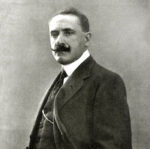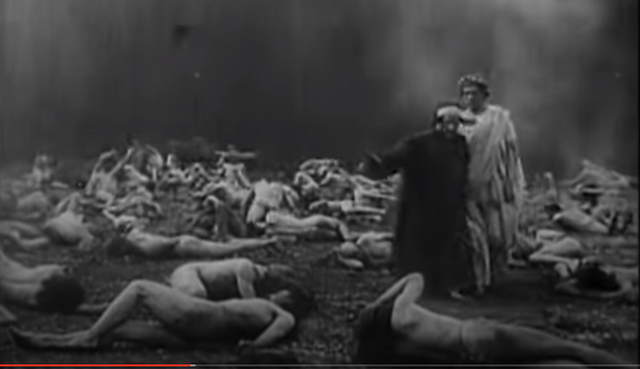Born in Naples on January 10, 1869, Giuseppe de Liguoro is credited with creating epic films that reached beyond the borders of his country.
Among the iconic silent films he directed during the second decade of the 1900s are “L’Inferno” and “L’Odissea.” Both were released in 1911.

“L’inferno” was roughly adapted from the first part of Dante Alighieri’s “Divine Comedy” and was Italy’s first completed feature film. The project took more than three years to make and was directed by Liguoro, Adolfo Padovan and Francesco Bertolini.
The gruesome story is set in the depths of Hell as Dante is guided through the “Nine Circles” by the poet Virgil. During their journey, they come in contact with whole host of characters, from the three-headed Cerberus to the flying serpent Geryon. They witness the devil savagely eating people, harpies eating the bodies of those who committed suicide, a man forced to carry his own severed head and people covered in lava. As limited as the options at the time may have been, the visuals are quite stunning and give testament to the ingenuity of the special effects crew.
The film premiered in Naples at the Teatro Mercadante on March 10, 1911. It was deemed an international success, grossing more than $2 million in the United States.
This year marks 700 years since the death of Alighieri. In remembrance, the Uffizi Galleries in Florence has made 88 images available on its website. The very first image is from Inferno. For a virtual tour, click here.
The following version of “L’inferno” has a modern soundtrack:
Directed by the same three filmmakers, “L’Odissea” was produced for the world’s fair of Torino to mark the 50th anniversary of the Unification of Italy. Based on Homer’s “Odyssey,” it premiered in the United States the following year and was hailed for launching “a new epoch in the history of the motion picture as a factory of education” by Moving Picture World, a trade journal for the American film industry.
Check out the vibrant colors of this version of” L’Odissea.”
 Fra Noi Embrace Your Inner Italian
Fra Noi Embrace Your Inner Italian







